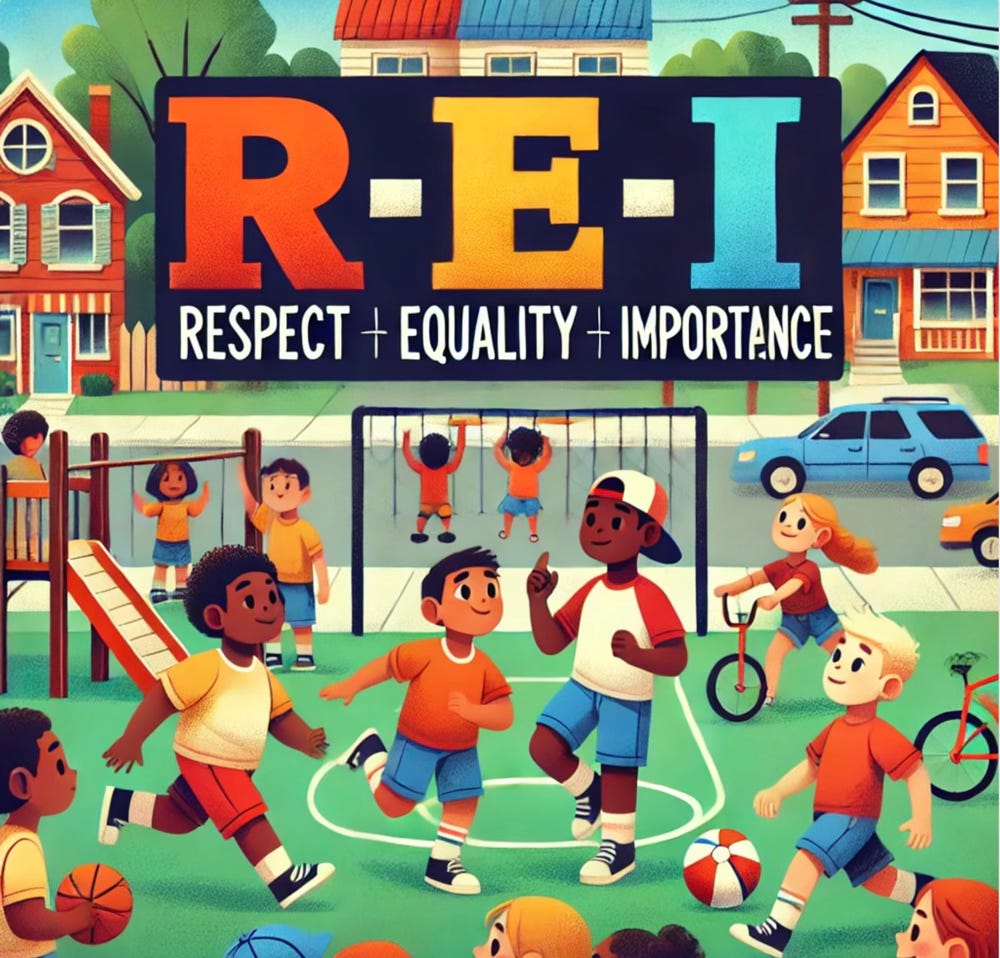In today’s society, there is a growing emphasis on Diversity, Equity, and Inclusion (DEI) as the primary framework for addressing inequalities in our communities. While well-intentioned, I believe that this focus on DEI often prevents us from confronting the real root causes of inequality. Instead of addressing the foundational issues that perpetuate disparities, we risk being distracted by surface-level solutions.
As someone who has spent 32 years coaching youth football, I have witnessed firsthand the profound impact that socioeconomic factors such as the digital divide, food insecurity, and the literacy gap have on young people. These are the issues of our time, and they are the true barriers that prevent many individuals, especially in underserved communities, from realizing their full potential.
Through my experience, I have developed a model called REI—Respect, Equality, and Importance. This model offers a different approach, one that I believe is more effective in addressing the challenges faced by our communities.
Respect is the cornerstone of this model. It means treating every individual with dignity, not based on the color of their skin but on the content of their character, echoing the powerful words of Martin Luther King, Jr. Respect is about listening, understanding, and valuing each person’s unique perspective and experiences. It is about recognizing our humanity and fostering an environment where everyone feels seen and heard.
Equality in the REI model goes beyond mere representation. It involves providing equal opportunities for everyone to succeed based on their abilities. True equality means leveling the playing field by addressing the socioeconomic disparities that hinder progress. It’s about ensuring that every child has access to quality education, nutritious food, and the technology they need to thrive in today’s digital world. It’s about creating opportunities that allow individuals to rise according to their capabilities, not holding them back because of the circumstances they were born into.
Importance is the third pillar of the REI model. It is about treating every person as if they are of great significance. This means taking the time to listen to their concerns, understand the challenges they face, and offer support wherever possible. When people feel important, they are more likely to engage, strive for success, and contribute positively to their communities. By making every individual feel valued, we can inspire them to reach their full potential.
The REI model, grounded in respect, equality, and importance, offers a pathway to addressing the true root causes of inequality in our society. By focusing on socioeconomic factors and treating each person with the dignity and respect they deserve, we can create a more just and equitable world.
In a time when DEI dominates the conversation, I believe it is crucial to have the courage to look deeper. We must shift our focus to the foundational issues that perpetuate inequality and adopt an approach that emphasizes character, capability, and the inherent value of every individual. By doing so, we can create lasting change and ensure that everyone has the opportunity to succeed, regardless of their background.
In the end, it is not enough to talk about diversity, equity, and inclusion. We must act on the principles of respect, equality, and importance, addressing the real challenges that hold our communities back. Only then can we hope to build a society where everyone is empowered to achieve their full potential?




